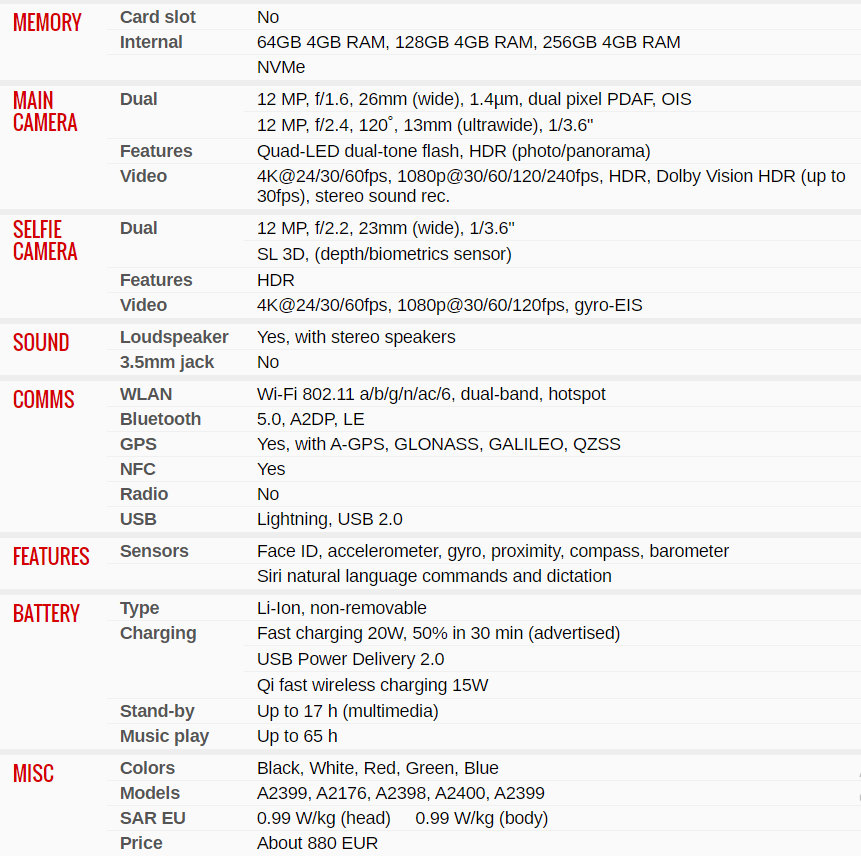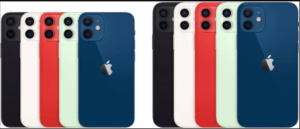Apple unveiled its newest flagship iPhones, iPhone 12 and iPhone 12 mini, on October 13, 2020, which deliver powerful features at an affordable price tag. The iPhone 12 and 12 mini, offered alongside the more costly iPhone 12 Pro and iPhone 12 Pro Max, are perfect for someone who doesn’t need the capabilities of a Pro camera.
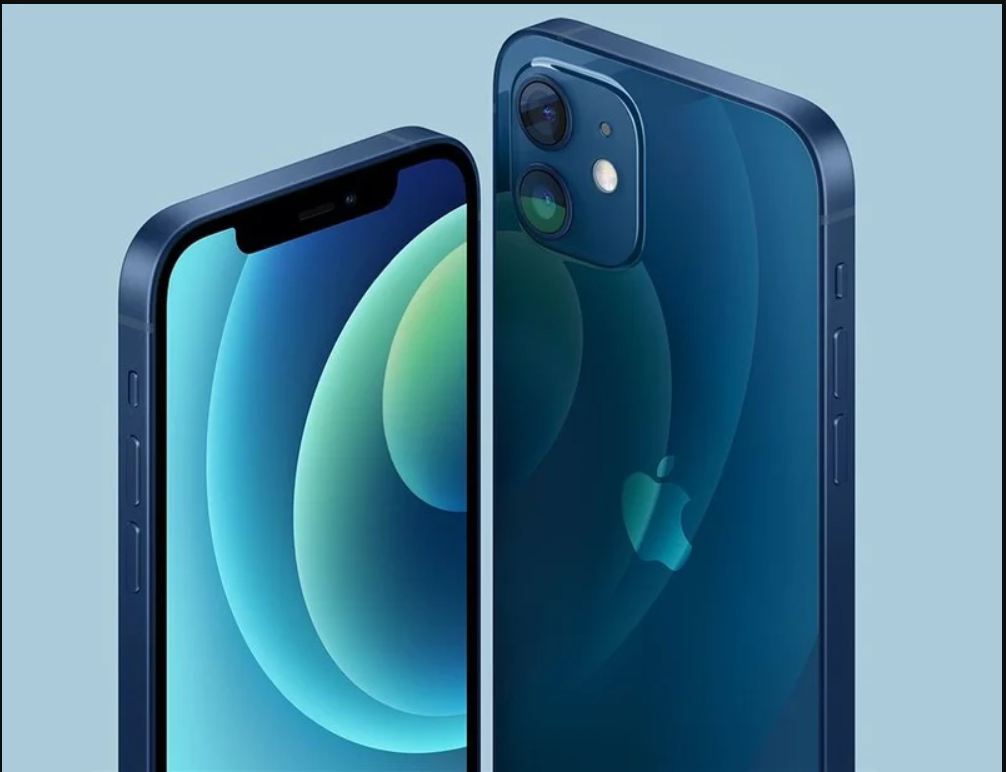
The iPhone 12 6.1-inch is a sequel to the iPhone 11, while the iPhone 12 5.4-inch is an all-new size and is the smallest iPhone that Apple has released since the iPhone SE 2016. The two phones are technically similar, aside from the screen size and battery size. With its compact scale, the iPhone 12 mini is suitable for those who want a single-handed iPhone.
iPhone 12 and iPhone 12 mini Pre-Order
On Friday, October 16, the 6.1-inch iPhone 12 was made available for pre-order, with a launch to follow on Friday, October 23. It is priced at $799 for 64 GB of storage, with an additional charge required for 128 and 256 GB.
On Friday, November 6, the 5.4-inch iPhone 12 mini will be available for pre-order, with a launch to follow on Friday, November 13. Pricing begins at $699 for 64 GB of storage on the iPhone 12 mini, with 128 and 256 GB storage options available.
Design of iPhone 12
For the iPhone 12 and 12 mini, Apple unveiled a new flat-edged design that is a departure from the rounded edges that have been used since the iPhone 6. The iPhone 12 models look identical to the iPad Pro models, and the iPhone 4 and 5 still hearken back to the flat edges.
The all-glass front and glass back panel are kept together with an aluminium frame with a matte design that varies significantly from the stainless steel band used for the Pro models in appearance.
There’s a notch on the front of the iPhone 12 models to house the TrueDepth camera, speaker, and microphone, and there’s a slender bezel all around the edges of the iPhone 12.
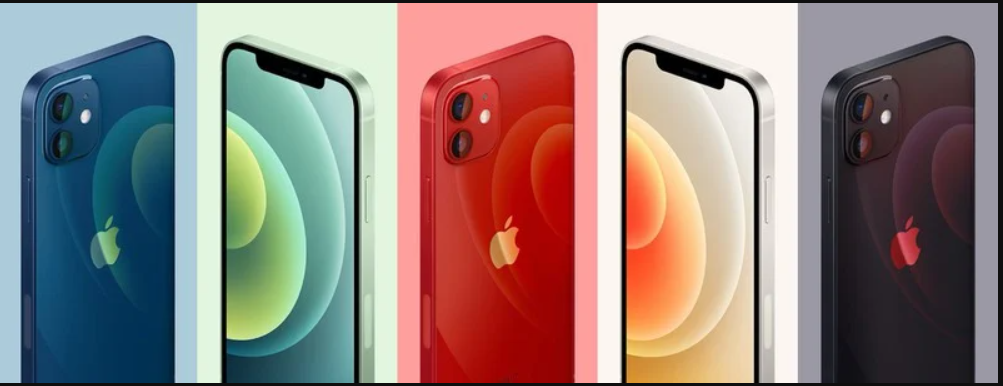
There’s a square camera bump on the back of the iPhone with a dual-lens camera and a flash. Below that, there is an Apple logo matching the device’s color.
Along with the regular power button on the right and volume buttons on the left, there are antenna bands on the top and sides of the handset. There is a new 5 G mmWave antenna underneath the power button, but this is a feature restricted to mmWave-supported U.S. devices. In other nations, iPhones may not have this antenna.
There is no difference between the iPhone 12 and the iPhone 12 mini, except for the size (and battery life). With the same feature set and style, the phones are similar in functionality.
iPhone 12 Sizes
The iPhone 12 is offered in a 6.1-inch size that is equivalent to the iPhone 11’s 6.1-inch size, while the iPhone 12 mini has a 5.4-inch display.
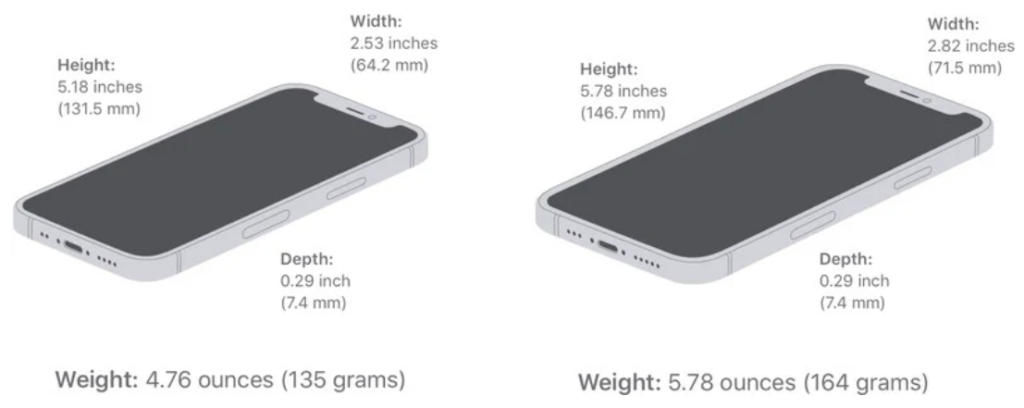
The 6.1-inch iPhone 12 is 11 percent thinner, 15 percent heavier, and 16 percent lighter compared to the iPhone 11, although the 5.4-inch iPhone 12 mini is not equivalent since it is Apple’s smallest, lightest iPhone since the 2016 iPhone SE.
Release Date of iPhone 12
The release date of the iPhone 12 is Oct. 23. The same release date is for the iPhone 12 Pro. Meanwhile, the iPhone 12 Mini and iPhone 12 Pro Max will have to wait for you. Those two phones have a Nov. 13 release date.
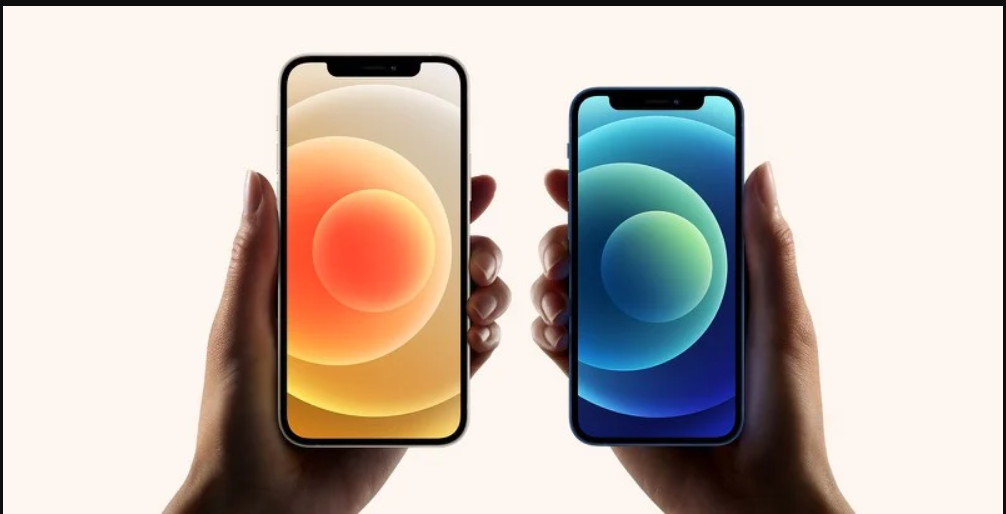
iPhone 12 Price
The starting price of the iPhone 12 mini is $699 for 64 GB, while the larger iPhone 12 costs $799. The starting storage is up to 128 GB for the iPhone 12 Pro and iPhone 12 Pro Max, priced at $999 and $1,099 respectively.
Outlook of iPhone 12:
The iPhone 12 is not filled with a lot of surprises, but it looks like Apple has made a lot of updates to lure upgraders. In particular, the stronger Ceramic Shield display, improved cameras throughout the board and the inclusion of 5 G are encouraging. More, it can certainly turn heads on the smaller iPhone 12 mini.
With all of the camera improvements, the iPhone 12 Pro and particularly the iPhone 12 Pro Max feel more Pro than ever. And we especially welcome the iPhone 12 Pro Max’s larger main camera sensor and more efficient zoom. When we get the new iPhones in for analysis, we’ll have to see how well the LiDAR sensor aids auto focus.
Also see the specification of “iPhone X“
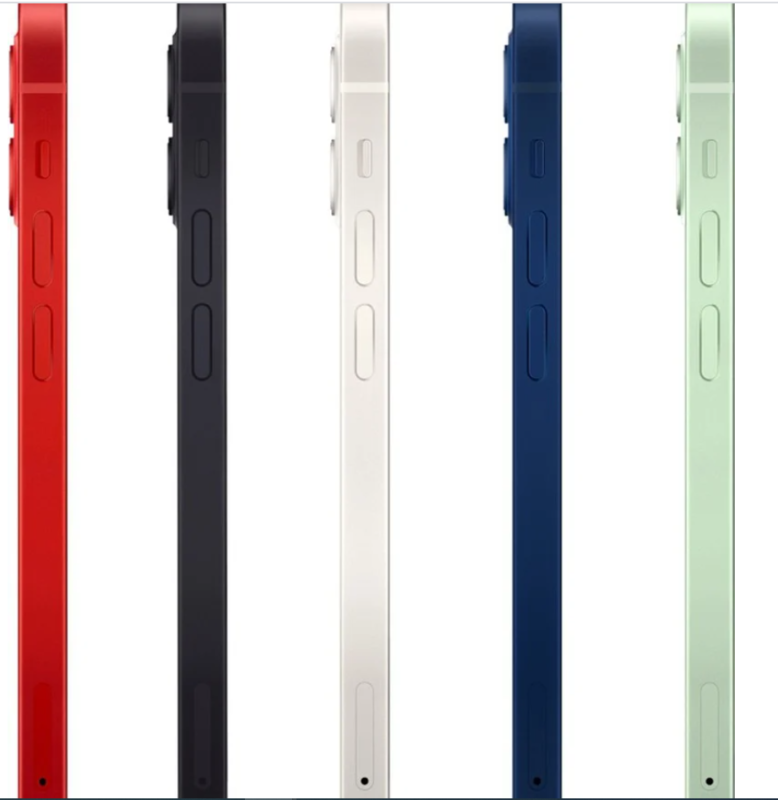
Fast Charging and MagSafe
The bad news is that Apple doesn’t have a new iPhone 12s charger. You just have a USB-C to the Lightning cable in the package and you don’t get a charging brick. There is, however, a new way to charge MagSafe.
MagSafe uses magnets to make it easier to charge the iPhone 12 by simply putting the charger on the back of your handset. MagSafe supplies up to 15W of fuel, and there are several accessories available, including a $39 MagSafe charger.
As well as MagSafe-ready cases and a leather wallet, Apple will also make a MagSafe Duo Charger available that can charge the iPhone 12 and Apple Watch simultaneously. Apple is partnering with third party suppliers to release 12 other MagSafe iPhone accessories.
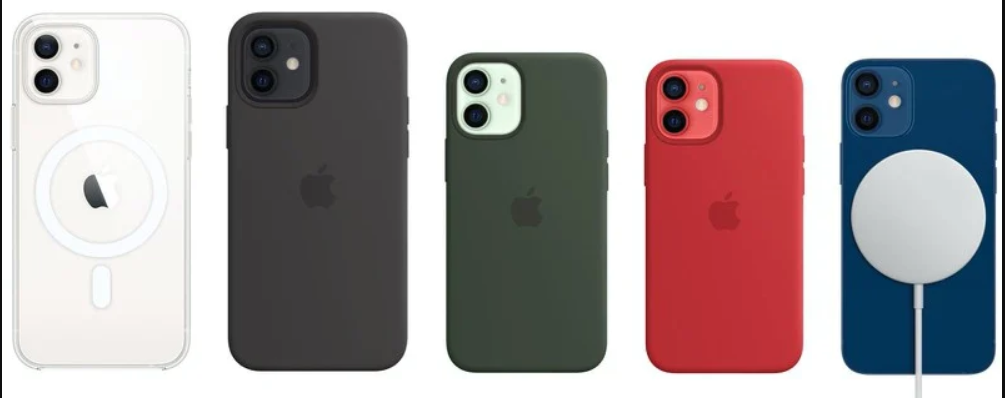
iPhone 12 Battery Life
Certifications issued in Brazil say that the iPhone 12 mini has a battery of 2,227mAh, while the iPhone 12 has a battery of 2,815mAh.
The iPhone 12’s battery life is similar to the iPhone 12 Pro’s battery life , providing up to 17 hours of video playback, up to 11 hours of video streaming, and up to 65 hours of audio playback.
It has a shorter battery life since the iPhone 12 mini is smaller. With normal video replay, it lasts up to 15 hours, with streaming video replay up to 10 hours and with audio playback up to 50 hours.
Using a Lightning to USB-C cable and a 20W power adapter, the iPhone 12 and iPhone 12 mini support fast charging and can charge to 50 percent within 30 minutes.
Power Adapter
As Apple removed them to reduce its environmental effects, the iPhone 12 and 12 mini do not come with a power adapter or EarPods in the package. In a smaller, slimmer box, the latest iPhones ship and come with only a regular USB-C to the Lightning cable.
Water Resistance:
The iPhone 12 and 12 mini are IP68 water resistant and can withstand a depth of up to six meters (19.7 feet) for up to 30 minutes.
The iPhone 11 had the same water resistance rating as IP68, but Apple said it could withstand water up to four metres deep for 30 minutes, so the new iPhones will hold up better to deeper submersion despite the same water resistance rating.
6 refers to dust resistance in the IP68 number (which means that the iPhone 12 Pro can stand up to dirt , dust, and other particles), whereas 8 refers to water resistance. The highest dust resistance rating is IP6x.
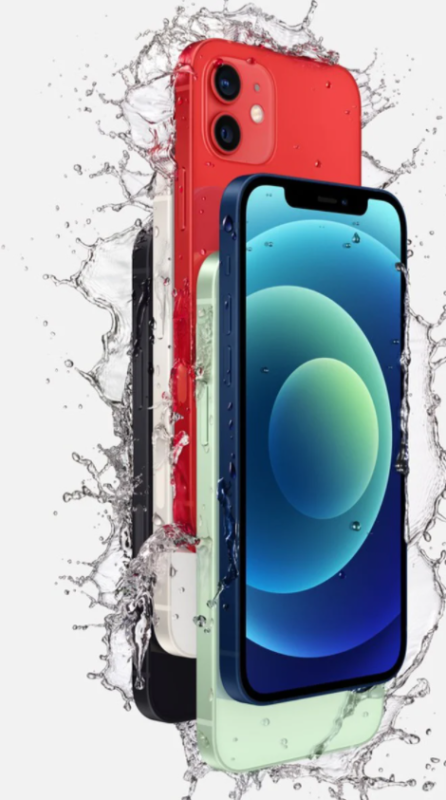
The iPhone 12 models can withstand rain, splashes and accidental spills, but deliberate exposure to water should be avoided because, with normal system use, water and dust resistance can degrade over time.
The iPhone warranty from Apple does not cover liquid damage, and although AppleCare+ does, a deductible would be expected to be charged for the damage to be repaired.
U1 Chip, WiFi and Bluetooth
The versions of the iPhone 12 feature the same U1 chip developed by Apple that was first included in the iPhone 11 lineup. For enhanced spatial awareness, the U1 chip allows Ultra Wideband technology to enable the iPhone 12 models to precisely locate other Apple devices equipped with U1.
As the technology is designed to enhance indoor positioning and location monitoring, Apple has compared Ultra Wideband to “GPS on the scale of the living room.”
With the rumoured AirTags launch, the U1 chip will come in handy, as it will allow for accurate tracking of lost devices. It is also used with the HomePod mini, which also has an U1 chip, for directional AirDrop and interaction.
As for Bluetooth and WiFi, Bluetooth 5.0 and WiFi 6, the latest and fastest WiFi protocol, are supported by the iPhone 12 models.
Bionic Chip A14
The 6-core CPU and 4-core GPU on the A14 Bionic chip are 50 percent faster than any other top smartphone chip on the market in 2020, according to Apple.
The first A-series processor designed on a smaller 5-nanometer process is the A14 Bionic processor used in the iPhone 12 lineup, bringing improvements in speed and performance. The A14 features 40 percent more transistors (11.8 billion) than the A13, for improved battery life and faster performance.
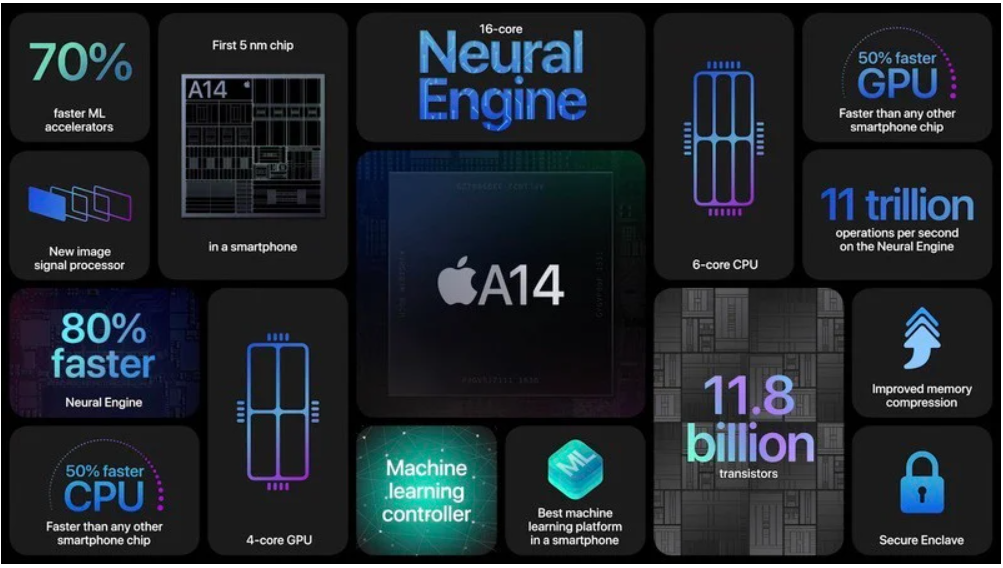
Other Specification of iPhone 12
